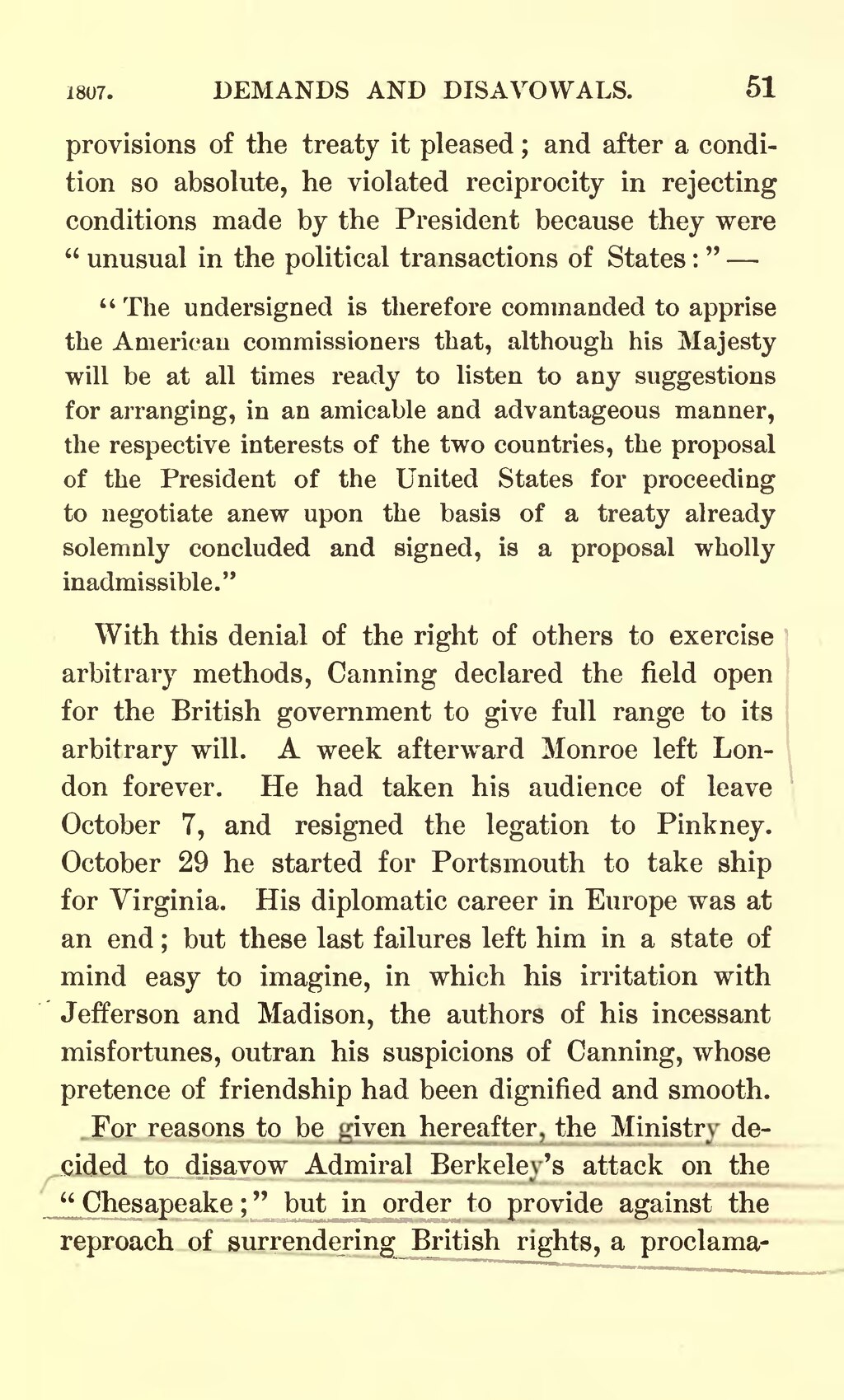provisions of the treaty it pleased; and after a condition so absolute, he violated reciprocity in rejecting conditions made by the President because they were "unusual in the political transactions of States:"—
- "The undersigned is therefore commanded to apprise the American commissioners that, although his Majesty will be at all times ready to listen to any suggestions for arranging, in an amicable and advantageous manner, the respective interests of the two countries, the proposal of the President of the United States for proceeding to negotiate anew upon the basis of a treaty already solemnly concluded and signed, is a proposal wholly inadmissible."
With this denial of the right of others to exercise arbitrary methods, Canning declared the field open for the British government to give full range to its arbitrary will. A week afterward Monroe left London forever. He had taken his audience of leave October 7, and resigned the legation to Pinkney. October 29 he started for Portsmouth to take ship for Virginia. His diplomatic career in Europe was at an end; but these last failures left him in a state of mind easy to imagine, in which his irritation with Jefferson and Madison, the authors of his incessant misfortunes, outran his suspicions of Canning, whose pretence of friendship had been dignified and smooth.
For reasons to be given hereafter, the Ministry decided to disavow Admiral Berkeley's attack on the "Chesapeake;" but in order to provide against the reproach of surrendering British rights, a proclama-
